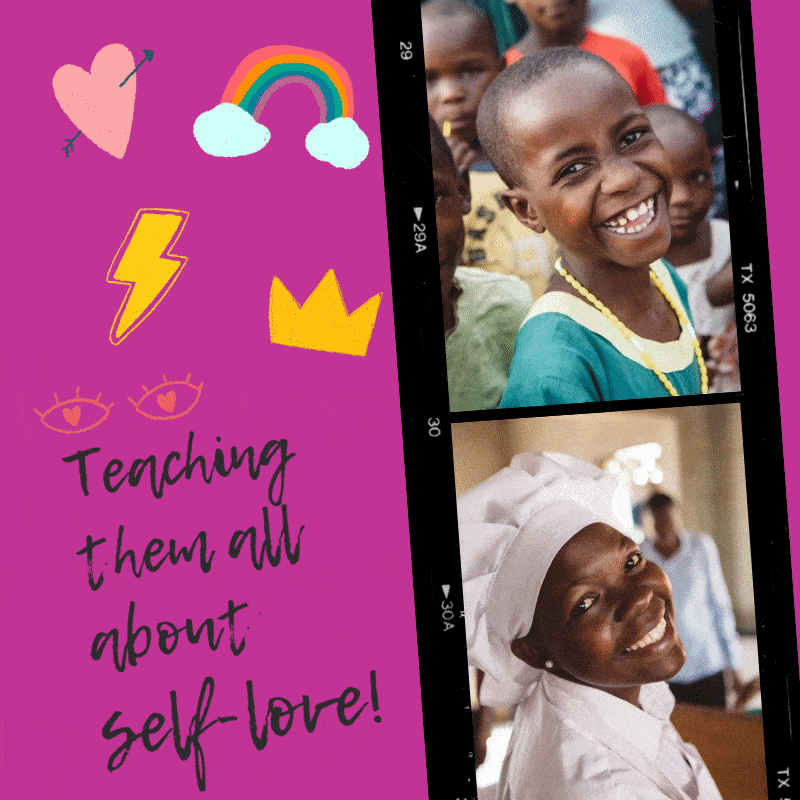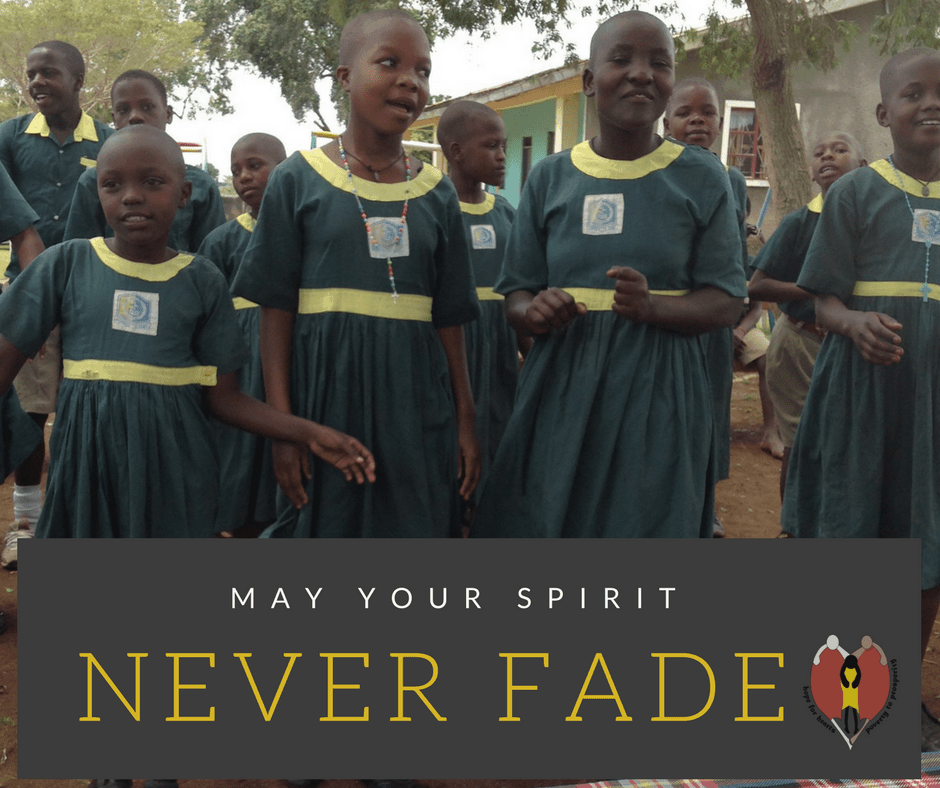Every 40 seconds, someone loses their life to suicide. Take a moment to think about that. I know it may be hard. Perhaps you’ve lost a friend or loved-one to suicide, or feel for those who have… for the people who felt they had no other options. It’s a difficult topic to explore, but it’s worth discussing in honor of World Mental Health Day.

Today is World Mental Health Day, a day to pause and reflect on mental health-related issues. This year’s theme is “Working together to prevent suicide.” Mental health is not a subject we often explore on this blog, but it is very much worth discussing. Father Mugaga and the nuns who care for the students in our schools not only have the task of feeding, sheltering, and educating these children, but also caring for their mental health and well-being. This care often includes helping children heal from traumatic pasts and the toll the past has taken on their mental health.
The children at our schools are all orphans who have faced several traumatic events in their lives. As a nation, Uganda is still facing several major issues including war, extreme poverty, the spread of HIV/AIDS and other diseases, etc. The impact of these tragedies has been widespread, but the most pertinent impact has been the deaths of so many citizens. One of the results of the unfortunate death toll in these cases is that children face uncertain futures, moving from family member to family member, until there is no one left to care for them. In addition to unstable caretakers, some children suffer from abusive caregivers before arriving at the orphanage.
Children who lack a consistent caregiver can develop disrupted attachment, which means that it is hard for children to form trusting, secure bonds with adults. The children have learned through lived experience that they can lose their caregiver at any moment, so they can develop significant difficulty attaching to other adults. Disrupted attachment is a severe form of trauma for children, leaving them to feel unsafe, unprotected, and vulnerable. This, combined with previous trauma that they have already likely experienced (war, poverty, disease, loss), leads to mental health symptoms that make it difficult for the children to function in a healthy way. Untreated trauma in children tends to mimic the symptoms of Attention Deficit Hyperactivity Disorder. They can demonstrate difficulty managing their behavior, with poor impulse control, inattention, hyperactivity, and defiance. This behavior makes it extremely difficult for the student to focus, but also interferes with the learning environment for the other children in the classroom. Often this can lead to a classroom in which the teacher is spending a significant amount of learning time redirecting the traumatized student’s behavior instead of teaching.
Poor mental health can have a major impact on everyone in the classroom, not just the affected child. Teaching and care-taking in an environment filled with traumatized children requires special people who understand mental health and the need for care and patience, rather than punishment. For the children in our schools, those people are Father Mugaga and the nuns who dedicate their lives to caring for these wonderful children. As much as we focus on the need to clothe, feed, and educate these children, their mental and spiritual well-being is also a priority. These children come to us at one of, if not the, most vulnerable points in their life. Many of them feel like they are broken, possibly seeing suicide as the only respite from life on the streets. Our schools give them shelter, love, and, most importantly, hope.
Although mental health is a primary concern for the children at our schools, it is difficult to concentrate on alleviating mental health symptoms when basic needs are unmet. This is where your help can make a huge impact on the long-term outcomes for these children. You can join Father Mugaga and the nuns and make a difference in the lives of these children, impacting generations to come. You can help our children focus on healing their mental health by making a donation to help provide for their shelter, food, and education. These donations allow them to truly focus on the important work of healing and practicing self-care at our schools, enabling them to learn, grow, and thrive.
For the truly disadvantaged in Uganda, counseling and therapy can be hard to access. However, as is true for the rest of the world, there are everyday things we can all do to help. In addition to donating to our children, there are also things you can also do on the home front to increase positive mental health for those around you. Think about all the self-care tips you’ve heard in your lifetime. Do you sometimes find yourself lacking the motivation to do some of these things? Perhaps you could use an extra push in the right direction? Be that motivation for someone else.
Today, in honor of World Mental Health Day, flip the script on suicide. Take 40 seconds to reach out to your friends and loved ones, especially those you may not have talked to in a while. Take the time to check-in with them and be there when needed. Show you really care by actively listening to them, and being there for them, without judgment. Break up their routine. Invite them to go to a yoga or tai chi class. Invite them to connect over a meal. Invite them to family game night. Invite them.
You never know the power a simple gesture of care and kindness can have on a life.
With love and gratitude,
Cristen Lyn
P.S. For more information on WHO’s A day for “40 seconds of action” to prevent suicide, click here

